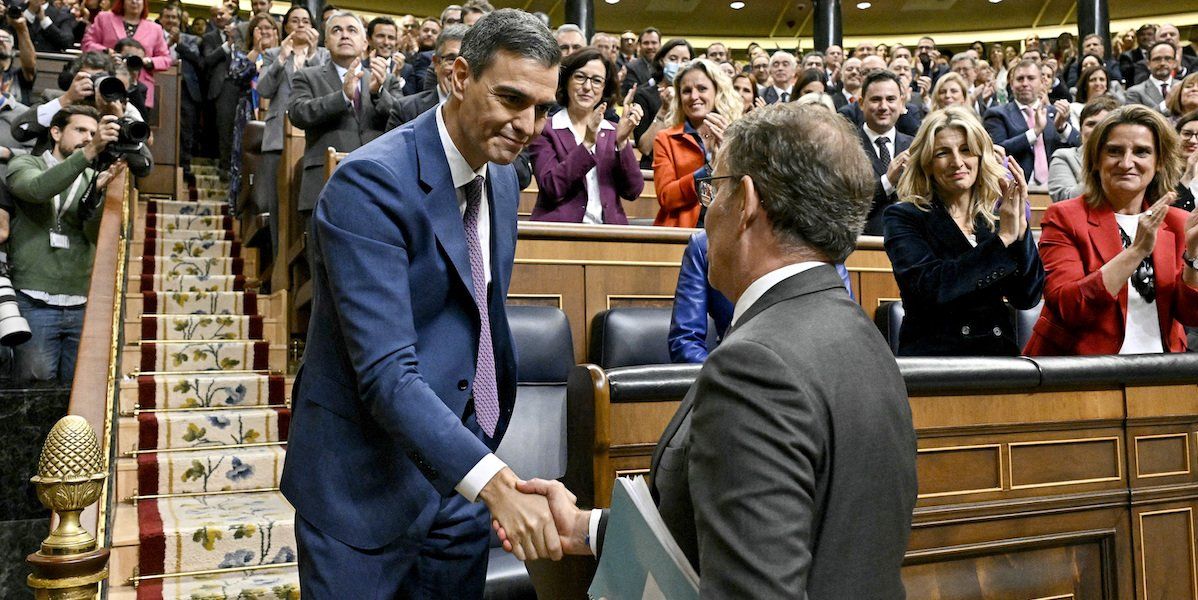After weeks of bare-knuckle bargaining, Pedro Sánchez, leader of Spain’s Socialist Party, has secured a four-seat majority in the country’s 350-seat Parliament to win a second term as prime minister. The process has been exceptionally ugly.
Four months ago, the conservative Popular Party finished with the most votes in multiparty elections, but its leader, Alberto Núñez Feijóo, failed to find the coalition partners he needed to form a majority government. Sánchez has now succeeded where Feijóo failed by forming an alliance with Catalan nationalist parties conditioned on legislation offering amnesty to hundreds of Catalan separatists who tried and failed in 2017 to lead a process of secession from Spain. This is a choice Sánchez once pledged he would not make.
Sánchez says the amnesty can help heal old wounds. His critics charge that he has committed treason in order to win enough seats to keep his job. The country has been rocked by (sometimes violent) protests in recent weeks. The demonstrations may continue as the amnesty law moves forward.
